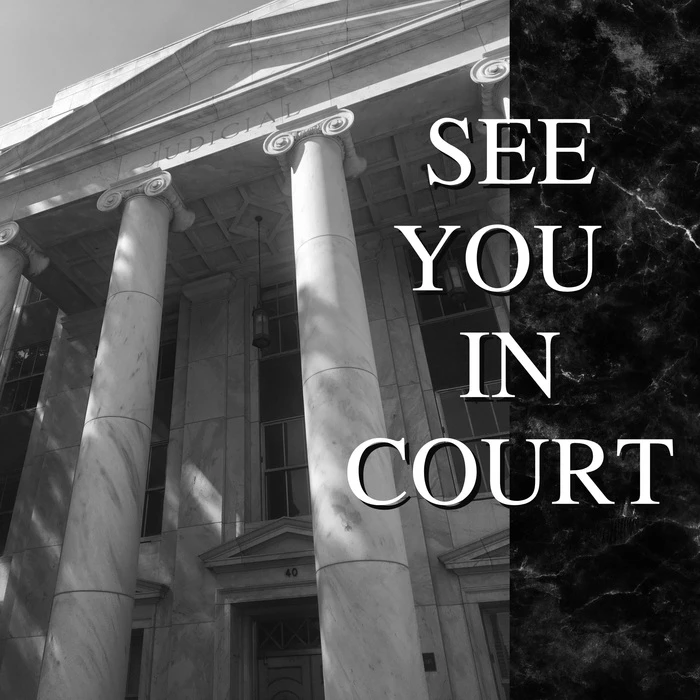What to Expect During A Traffic Court Date in Georgia
In the state of Georgia, traffic tickets, citations, and offenses are considered misdemeanor criminal offenses. These offenses are detailed in Title 40 of the Official Code of Georgia, with maximum punishments of up to 12 months in jail and/or a fine of up to $1,000. While most traffic charges in Georgia result in a fine and points on the individual’s driver’s license, some offenses like DUI, driving without a license, driving with a suspended license, and fleeing and eluding carry mandatory jail time if convicted.

As noted, traffic offenses in Georgia are serious crimes that can significantly impact someone’s driving history, insurance rates, and ability to resolve future traffic citations, Here are some key points to know and some tips when dealing with the Georgia court system.
Preparing for A Court Date
Rescheduling
If a court date needs to be rescheduled, contact the court immediately. Remember, requesting a rescheduled date or notifying the court of an emergency does not guarantee an individual will be excused from court. Always assume any absence is a failure to appear until written confirmation of a rescheduled date is received.
Dress Code
It’s important to adhere to the courthouse’s dress code, which typically requires long pants or skirts, covered shoulders, and closed-toe shoes. Failing to follow the dress code could result in being marked as failing to appear.
Arrive Early
Plan to arrive at the courtroom 15 minutes before the scheduled appearance in order to allow time for parking, security, and finding the correct courtroom. Some judges may lock the doors at the start time and mark latecomers as failing to appear or require them to wait until the end of court for their case to be heard.
Bring Relevant Documents
Bring any documents that may help the case, such as proof of renewed tags if cited for an expired tag or any witnesses to the event.
Courtroom Etiquette
Ensure phones are kept on silent mode and turn it off if instructed to do so by courtroom staff. Some courts have sign-in sheets upon arrival, so be sure to sign in if one is available.
Plea Options
When called upon by the judge, individuals should stand and inform the judge of their plea. Typically, there are five options:
- Not Guilty – Jury Trial: The case will be scheduled for a jury trial, usually moving it to the State Court of the county where the offense occurred.
- Not Guilty – Bench Trial: The case will be scheduled for a trial with the judge determining innocence or guilt at a later date. The first day in court will not be your trial day.
- Pre-Trial: Announcing “pre-trial” or “I want to speak to the solicitor” allows an individual to discuss their case with the solicitor. Be cautious, as any discussions with the solicitor can be used as admissions of guilt later. However, speaking with a solicitor may help an individual save points on their license, avoid a suspension, or reduce the fine. Occasionally, a case may be reset for further investigation or to obtain documents after speaking with the solicitor.
- Guilty: Pleading guilty means the individual admits to the offense as cited and wants to finalize the case. In this case, the judge will then issue punishment.
- Nolo Contendere: Also known as “no contest” or “nolo,” this plea means the individual understands the nature of the charge and wants the case finalized without admitting guilt. The judge has discretion to accept this plea, which can help avoid points on the person’s license or a possible suspension if they are eligible. An individual must be 21 to enter a no contest plea in Georgia, and a person can only do so once every five years.
Considerations for Young Drivers
Drivers under 21 have additional factors to consider when resolving their case. From ages 16-18, drivers face a license suspension if they accumulate 4 or more points on their Georgia driver’s license. From 18-21, any 4-point violation will result in a suspended license. For drivers under 21, a pre-trial discussion with the solicitor is recommended in nearly every situation.
Fines and Probation
If the individual cannot pay the full fine for their Georgia traffic ticket when closing the case, they will be placed on probation. Probation is generally “pay only” until the fine is paid, but probation supervision fees will be added to the fine payment. To estimate the fine amount, individuals should contact the clerk’s office of the court where they will appear and ask for an approximate total fee in advance.
Remember, Traffic Court is Real Court
The rules of evidence apply in traffic court just as they do in the most serious felony cases. People can be held in contempt of court for disturbing the proceedings. Judges understand people have other commitments and are doing their best to process cases efficiently while ensuring every case is treated fairly and with respect.
What to learn more? Subscribe to the See You in Court Podcast to Learn More About the Georgia Court System!
For more insights into the Georgia court system, subscribe to the See You in Court podcast. Our podcast offers general information to help individuals stay up to date on the legal process and their rights within the Georgia court system.







